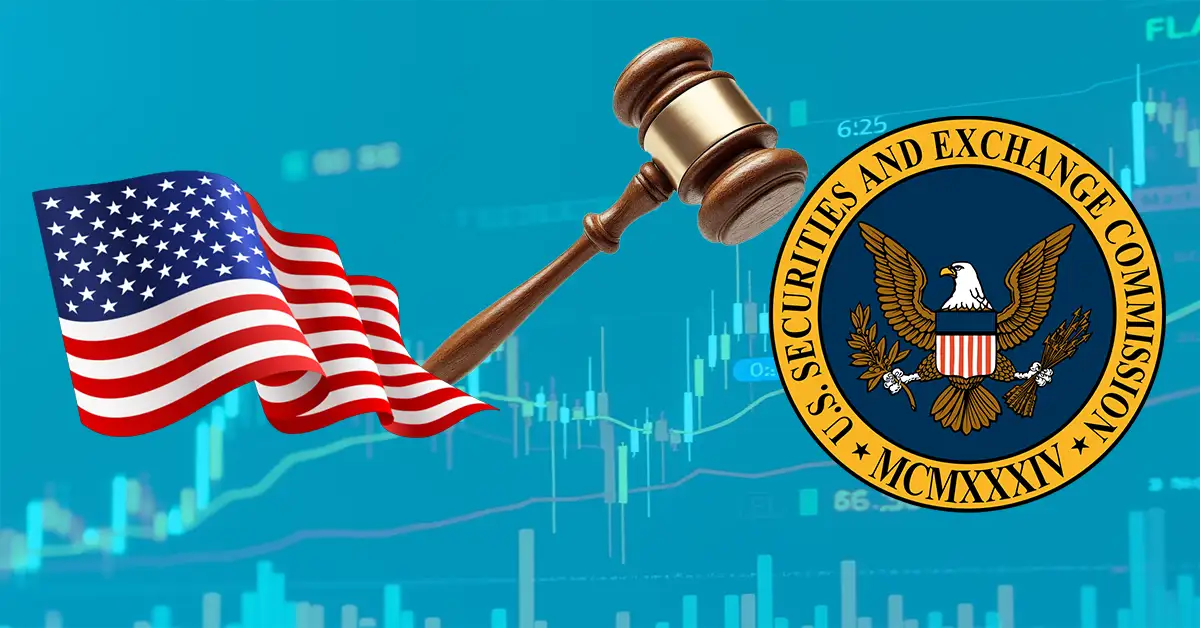
In a significant move that could reshape the landscape of cryptocurrency regulation in the United States, eighteen states have banded together to file a lawsuit against the Securities and Exchange Commission (SEC). This legal action, spearheaded by Kentucky Attorney General Russell Coleman, represents a collective pushback against what these states perceive as federal overreach in the realm of digital asset regulation.
States Claim the SEC is Overstepping
The coalition of attorneys general, which includes notable figures such as Florida’s Ashley Moody, Texas’s Ken Paxton, and Tennessee’s Jonathan Skrmetti, is challenging SEC Chair Gary Gensler’s approach to cryptocurrency oversight. Gensler has asserted that most cryptocurrencies, with exceptions like Bitcoin and Ether, should be classified as securities. This stance has led to enforcement actions against major crypto companies such as Coinbase and Ripple, with the SEC arguing that these entities should have registered their digital assets as securities. The states, however, view this as an overextension of federal authority.
The lawsuit contends that the SEC’s actions are causing confusion and uncertainty within the rapidly evolving cryptocurrency industry. The attorneys general argue that the SEC’s approach disregards the original intent of Congress regarding crypto oversight. They believe that state-level regulation is more appropriate and better suited to address the unique needs and dynamics of local markets, thereby fostering innovation and economic growth without stifling the burgeoning digital asset industry.
Political and Industry Backing
The lawsuit has garnered significant political and industry support. Key political figures, including Tennessee Senator Bill Hagerty, have criticized what they perceive as the SEC’s “anti-crypto agenda.” This legal challenge aligns with the broader political promises made by former President Donald Trump, who pledged to support the cryptocurrency industry by reducing federal intervention.
Industry advocates, alongside attorneys general such as Indiana’s Theodore E. Rokita, Mississippi’s Lynn Fitch, and Missouri’s Andrew Bailey, argue that states are better positioned to develop practical and effective crypto regulations. This lawsuit signifies a broader movement aimed at decentralizing regulatory power, shifting it from the federal level to the states.
Notably, former U.S. Senate candidate John E Deaton has expressed his support for the lawsuit, recalling his own legal actions against the SEC in the case involving XRP. Deaton’s involvement underscores the widespread discontent within the crypto community regarding the SEC’s regulatory approach.
What to Expect
The outcome of this lawsuit could lead to substantial changes in the regulatory framework governing cryptocurrencies in the United States. With Republicans holding key positions and potential changes in leadership at the SEC, there is a possibility of more crypto-friendly regulations that emphasize states’ rights. A favorable ruling for the plaintiffs could empower states like Oklahoma and Iowa, giving them greater autonomy over cryptocurrency policy.
The crypto community is closely monitoring the case, especially given the prolonged duration of the Ripple lawsuit and the SEC’s persistence despite clear rulings. The resolution of this case could redefine how digital assets are managed, potentially paving the way for clearer and more innovation-friendly regulatory guidelines.






